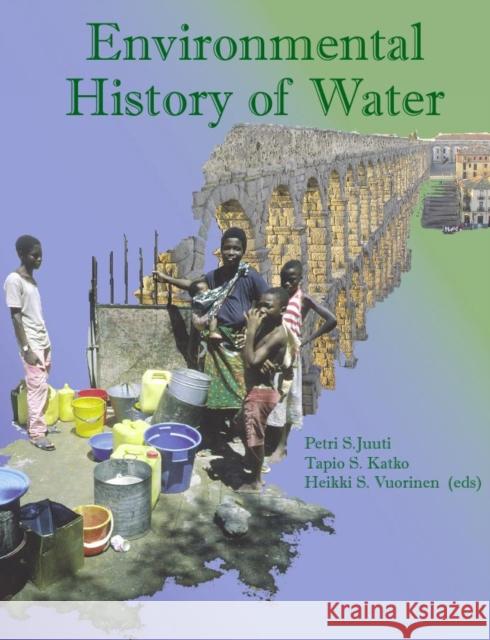Environmental History of Water » książka
Environmental History of Water
ISBN-13: 9781780408309 / Angielski / Miękka / 2007 / 640 str.
The World Water Development Report 2003 pointed out the extensive problem that: 'Sadly, the tragedy of the water crisis is not simply a result of lack of water but is, essentially, one of poor water governance.' Cross-sectional and historical intra-national and international comparisons have been recognized as a valuable method of study in different sectors of human life, including technologies and governance. Environmental History of Water fills this gap, with its main focus being on water and sanitation services and their evolution. Altogether 34 authors have written 30 chapters for this multidisciplinary book which divides into four chronological parts, from ancient cultures to the challenges of the 21st century, each with its introduction and conclusions written by the editors. The authors represent such disciplines as history of technology, history of public health, public policy, development studies, sociology, engineering and management sciences. This book emphasizes that the history of water and sanitation services is strongly linked to current water management and policy issues, as well as future implications. Geographically the book consists of local cases from all inhabited continents. The key penetrating themes of the book include especially population growth, health, water consumption, technological choices and governance. There is great need for general, long-term analysis at the global level. Lessons learned from earlier societies help us to understand the present crisis and challenges. This new book, Environmental History of Water, provides this analysis by studying these lessons. Contents Part One: Early Systems and Innovations Part Two: Period of Slow Development Part Three: Modern Urban Infrastructure Part Four: Future Challenges in Water Supply and Sanitation Services and Environmental Health
The World Water Development Report 2003 pointed out the extensive problem that: Sadly, the tragedy of the water crisis is not simply a result of lack of water but is, essentially, one of poor water governance.Cross-sectional and historical intra-national and international comparisons have been recognized as a valuable method of study in different sectors of human life, including technologies and governance. Environmental History of Water fills this gap, with its main focus being on water and sanitation services and their evolution. Altogether 34 authors have written 30 chapters for this multidisciplinary book which divides into four chronological parts, from ancient cultures to the challenges of the 21st century, each with its introduction and conclusions written by the editors. The authors represent such disciplines as history of technology, history of public health, public policy, development studies, sociology, engineering and management sciences. This book emphasizes that the history of water and sanitation services is strongly linked to current water management and policy issues, as well as future implications. Geographically the book consists of local cases from all inhabited continents. The key penetrating themes of the book include especially population growth, health, water consumption, technological choices and governance. There is great need for general, long-term analysis at the global level.Lessons learned from earlier societies help us to understand the present crisis and challenges. This new book, Environmental History of Water, provides this analysis by studying these lessons.ContentsPart One: Early Systems and InnovationsPart Two: Period of Slow DevelopmentPart Three: Modern Urban InfrastructurePart Four: Future Challenges in Water Supply and Sanitation Services and Environmental Health











